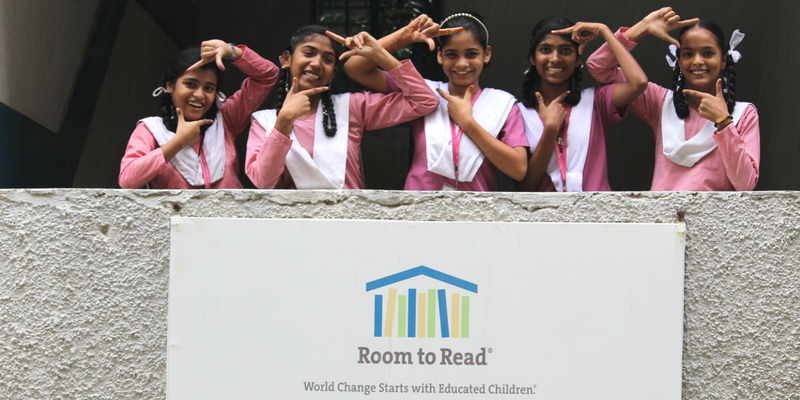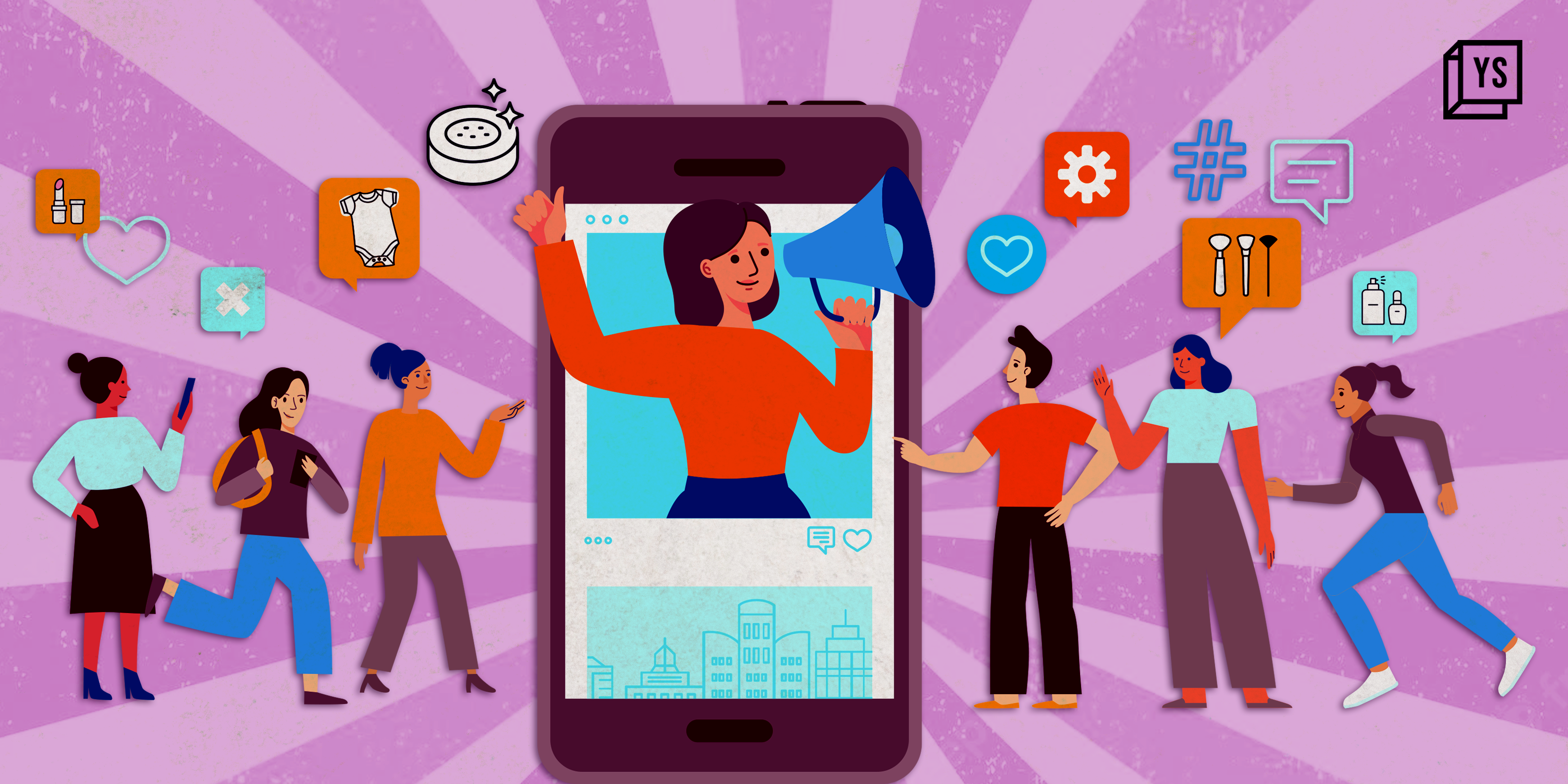Every child needs education and a “Room to Read” to achieve success
This global non-profit organisation, believes worldchange starts with educated children. It aims to transform the lives of millions of children in low-income countries by focusing on literacy and gender equality in education.

Anushka, a Class 2 student studying in Municipal Corporation of Delhi school, re-discovered her love for villages and rural India through a library built by Room to Read.
A regular visitor to the library, she is enthralled by the books available. “I took books home, and my uncle and aunt helped me with reading. The library is a world within a world. There are many stories that are based on village life and culture. My favourite titles are Peepal ki Ped, Gussa and Ek Gend Uchhli,” she says, her eyes twinkling in excitement.
Ajay, a Class 8 student from Sant Ganeshnath Maharaj Vidyalaya, Raigad in Maharashtra, defied tribal customs and escaped an early marriage. So much was his love for books that he was willing to walk long distances, and cross flooding streams during the rainy season to reach school. He now has a dream.
“I want to build bridge and road from my village to school,” he says.

Ajay belongs to the Katkari tribe, a scheduled tribe with a negligible two percent literacy rate where the average marriageable age for boys is around 13-14 years. His uncles pressurised him to marry as well. However he was adamant studies would come first and not marriage. He is currently enrolled in the Room to Read’s Literacy programme.
Roshanara, from Delhi, recounts how she escaped an arranged marriage at 15, and impressed upon her family to allow her to continue her education. “I had no confidence earlier, but after attending the life skills training programme, I can express myself,” she says.
Supported by her like skills training and mentorship at Room to Read, she continues her studies today and is pursuing a Bachelor’s degree at Jamia Milia Islamia, also works part-time in a doctor’s clinic to support her family.
These young students are among the 12.4 million children, across 20,000 communities, who have benefitted from Room to Read’s multiple programmes.

“Creating meaningful, lasting change is far from immediate. It takes persistence and determination, child after child, generation after generation. And to sustain this change, we need to be pragmatic and laser-focused on our mission. Room to Read’s approach is not just about short-term gains – it is about solutions,” says Dr Geetha Murali, the global CEO of Room to Read.
Room to Read primarily works in collaboration with local communities, partner organisations, and governments to develop literacy skills, the habit of reading among primary school children, while ensuring that girls can complete secondary school with the skills necessary to negotiate key life decisions.
Engaging young minds
Geetha believes that quality of life, health, and economic opportunity all depend on education, and “right now there remains an education crisis in low-income countries.” A UNESCO 2017 report states that seven hundred and fifty million people, globally, are illiterate where two-thirds are women and girls.

Even with increased access to school, through Right to Education and other government policies and provisions, many children fail to grasp the basics while in primary school. According to the Annual Status of Education Report 2016 (ASER), learning levels remain “depressingly low across the country.” While 97 percent of children (aged 6-14 years) across rural India are enrolled in a school, only 13 percent of the children in grade two can read from their language textbooks.
The reasons for which range from underprepared teachers, inadequate funds, lack of books and school infrastructure challenges.
“Room” for literacy
Room to Read, a global non-profit organisation, believes that world change starts with educated children. The organisation seeks to transform the lives of millions of children in low-income countries with a focus on literacy and gender equality in education.
“Education is not a vaccine that can be injected. It is a long-term effort. Children supported by our programmes are the first in their families to become literate, they are the first in their communities to attend university and pursue careers outside the home. I see the transformation that is possible through education in every community where we work in India and beyond,” she says.

By focusing on the quality of education provided within communities and ensuring these outcomes are measured, the team has created a model that can be replicated, localised, and sustained by governments. The two programmes offered by the organisation are:
- Literacy Programme enables primary school children to become independent readers. The team focuses on developing reading skills and the habit of reading in primary school-aged children by establishing libraries, increasing access to “age-appropriate and culturally relevant” reading materials.
- Girls’ Education Programme supports girls to complete secondary school with the skills necessary to negotiate key life decisions. The focus here is to help girls transition to secondary school by providing them support to attend school, mentoring young students and creating “girl-friendly school environments.”
The organisation has branches across India, Hong Kong, the UK, the US, Singapore, Australia, Switzerland, and Japan. The India chapter started in 2003.
Skills for life
Through the ‘Literacy and Girls’ Education’ programme, the organisation has reached over 12.4 million children in 10 countries across Asia and Africa. In India it has connected with 3.7 million children alone. Yet Geetha says that their job is far from over.

“We know there are 250 million children around the world not learning the basics and those children are waiting for those same educational opportunities,” she says.
The team claims that students in Room to Read-supported classrooms demonstrate “significantly higher reading fluency and comprehension scores” than their peers in comparison schools.
Globally, by the end of grade two, children in Room to Read schools are able to read a short passage an average of 2.1 times as fast as children in comparison schools, as measured in words per minute.
Further, drop-out rates for secondary school girls supported by Room to Read decreased in 2016 by 3 percent, from nine percent to six percent, with the greatest improvements shown in higher grades where girls face particularly strong challenges.

Room to Read is currently conducting a life skills evaluation in India through a first-of-its-kind randomised, controlled trial taking place in Rajasthan over two school years.
The evaluation uses innovative methods, such as a scavenger hunt and a mirror drawing task, to assess the impact of Room to Read’s programme on girls’ development of skills such as perseverance and negotiation as well as their academic outcomes.
As the rooms expand…
Presently 60 percent of the revenue comes from individual supporters and family foundations, while the remaining investments come from corporations and foundations. The team also encourages individual donors and sponsorships where a one-time donation of Rs 3000 supports one child’s education - reading and writing; while Rs 17,000 supports a year of education for a girl in secondary school, including life skills training and mentorship.
"There are 250 million children without basic skills, 130 million girls not in school. Changing those statistics through our work at Room to Read is my singular aim,” Geetha shares.
Over the years the organisation has partnered with government, non-profits and investors to implement their programme in a larger scale through the ‘Room to Read Accelerator’ approach.

Since 2007, Room to Read has achieved 11 4-star ratings from Charity Navigator, indicating that the organisation outperforms most other charities in America. In 2014 they won ‘Library of Congress Literacy Award’s David Rubenstein Prize for outstanding commitment to literacy, and the UNESCO, 2011, ‘Confucius Prize for Literacy’ recognising excellence and inspiration in the literacy field.
In the coming years, through its direct implementation approach, Room to Read hopes to invest in the lives of approximately one million children each year for the next five years, thereby impacting at least 15 million children by 2020.











